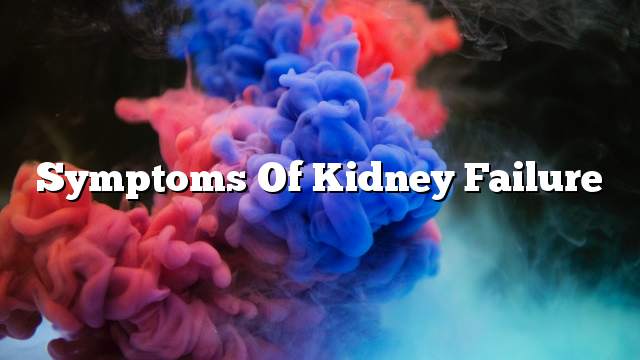One of the most important organs of the human body, the kidney that is responsible for the purification of blood and the elimination of exhaust and toxins produced by the metabolism, and also arrange the amount of electrical elements, such as salts and ions, in addition to being responsible for controlling the volume of fluids in the body.
The kidney is similar in shape to that of the beans and remains larger than the grain of beans in size. Its color is brown and tends to red. Each kidney weighs about 150 grams of the total human mass, and the left kidney is often higher than the right kidney. The kidneys are located on the back wall of the abdominal cavity, specifically on both sides of the spine, below the diaphragm. The most common disease is kidney failure or renal failure. This term is applied to the kidney if it fails to perform its function, Two types: chronic renal insufficiency and acute renal insufficiency.
The causes of this multiple disease variety include:
- Injury of the person with diseases such as blood pressure or diabetes.
- If some medications are also taken without consulting your doctor.
- Total kidney tissue is damaged.
- If the kidney is also infected with acute inflammation or chronic inflammation.
- The person returns to undesirable and desirable food habits where his food is unbalanced in terms of quantity and quality.
* The diseases also cause the mention of bladder or kidney bladder cancer, kidney stones,
- A blockage of the kidney artery, which in turn provides blood, whether this blockage in whole or in part.
- Factors that make the kidneys vulnerable to smoking, obesity, heart disease, high cholesterol levels, previous kidney injuries within the affected family.
Symptoms of renal failure may not feel any patient for a long period of time and remains the most important symptoms of this disease:
- Difficulty breathing.
- Feeling tired and tired at the mental and physical level.
- Lack of appetite.
- The possibility of a patient with high pressure or anemia.
- The patient’s injury to Lin in the bone due to lack of vitamin D in its active form.
- Tinnitus or inflammation in peripheral nerves.
Complications that may occur in the case of renal failure include fluid retention, bone fractures, and central nervous system injury.
The treatment of renal failure is the therapeutic focus on the cause of the disease, where no drug is now reached to restore the performance of the kidneys, with the importance of also follow the patient for certain advice to protect him from continuing damage caused by kidney failure such as taking care to eat as little amount of proteins, salt and potassium, He should also refrain from smoking.
